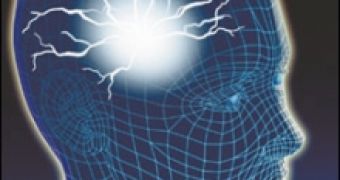Parkinson disease is a chronic and progressive brain disorder. It occurs when neurons in a part of the brain called the substantia nigra die or are incapable of functioning. Neurons normally produce dopamine, a substance which allows coordinated function of the body's muscles and movement, serving as a neurotransmitter. The symptoms of the disease begin to appear when 80% of the dopamine-producing cells are damaged. Messages sent to the brain telling the body how to move are delivered slowly, rending a person incapable of initiating and controlling movements in a normal way.
1 million Americans suffer from Parkinson's disease. 60,000 are diagnosed annually, while tens of thousands of cases remain undetected. 15% of affected people are diagnosed before they turn 50, the symptoms progressing as the person grows older. The illness is experienced by men and women in equal numbers and has no social, ethnic, economic or geographic boundaries.
Parkinson's disease comes with severe symptoms, which vary from an individual to another. Some of the most common symptoms include tremor of the hands, arms, legs, jaw and face, rigidity of the limbs and trunk, slowness of movement and impaired balance and coordination. Small, cramped handwriting, difficulty in swallowing, pain, drooling, fear, skin-related problems, sexual dysfunctions, loss of energy and depression may be other signs of the illness.
In early stages of the disease, 70% of people experience tremors, often appearing when a person's muscles are relaxed. Bradykinesia, a phenomenon frequently experienced by Parkinson patients, can be characterized through incomplete movement, difficulty initiating movements and sudden stopping of ongoing movement. The muscles' rigidity can also occur in the face, leading to a "mask-like" appearance.
The cause of the disease remains unknown, but scientists believe it is a combination of genetic and environmental factors which vary from one person to the other. In some patients, they have identified the cause which leads to Parkinson's disease (PD), older patients having an increased risk of catching it.
15 to 25% patients suffering from PD have a relative with the disease. Scientists discovered in recent research that those who have a parent or a sibling with the disease have a risk 2 or 3 times larger of developing the illness. Parkinson's cases are not inherited, but several genes were discovered that cause the disease in a small number of families. These genes involve proteins that play a role in dopamine cell functions.
Some researchers even suggested that PD may appear after exposure to an environmental toxin or injury. Rural living, well water, herbicide use and exposure to pesticides have been linked to the disease. The environmental factors have been helpful in studying laboratory models of Parkinson's disease and doctors are working to establish a clear link between them and the disease.
A wide range of medications is used for treating the symptoms of PD. The choice of the drug treatment depends on many variables including symptom presentation, other concurrent health issues or one's health. People with the disease and the persons that look after them should become familiar with the medication regime and stick to it in order to benefit as well as possible from it.
40 years since its discovery, levodopa remains the best treatment so far. Levodopa is a substance which, converted into dopamine by a substance of the brain, activates dopamine receptors and allows the normal function of the movement control centers. Levodopa combined with carbidopa is a significant improvement for treating the disease. Carbidopa prevents levodopa from being converted into dopamine in the bloodstream, yielding a smaller quantity of the latter substance. The combination also reduces the nausea and vomiting which come if levodopa is taken alone. Low blood pressure, confusion, dizziness are other side effects that accompany the medicine.
As an alternative treatment for the disease, some researchers are studying antioxidants. Coenzyme Q10 is believed to play an important part in mitochondria health; abnormalities of the mitochondrial function are thought to play an important role Parkinson's. A recent clinical trial showed that coenzyme Q10 showed a possible slowing of disease progression in a small number of subjects.
Vitamin E and Vitamin C were also examined in the tests. Vitamin E can fight damage in the brain caused by free radicals, lowering the risk of PD, but no evidence was found that it slows the progression of the illness. Although nutritional supplements have shown some promising results in preliminary studies, due to insufficient data, they cannot be recommended in treating the disease.
Maintaining a positive attitude is one of the healthiest things a person can do when diagnosed with Parkinson's disease. People with a positive way of thinking can cope with the illness and will continue their activities and relationships.

 14 DAY TRIAL //
14 DAY TRIAL //